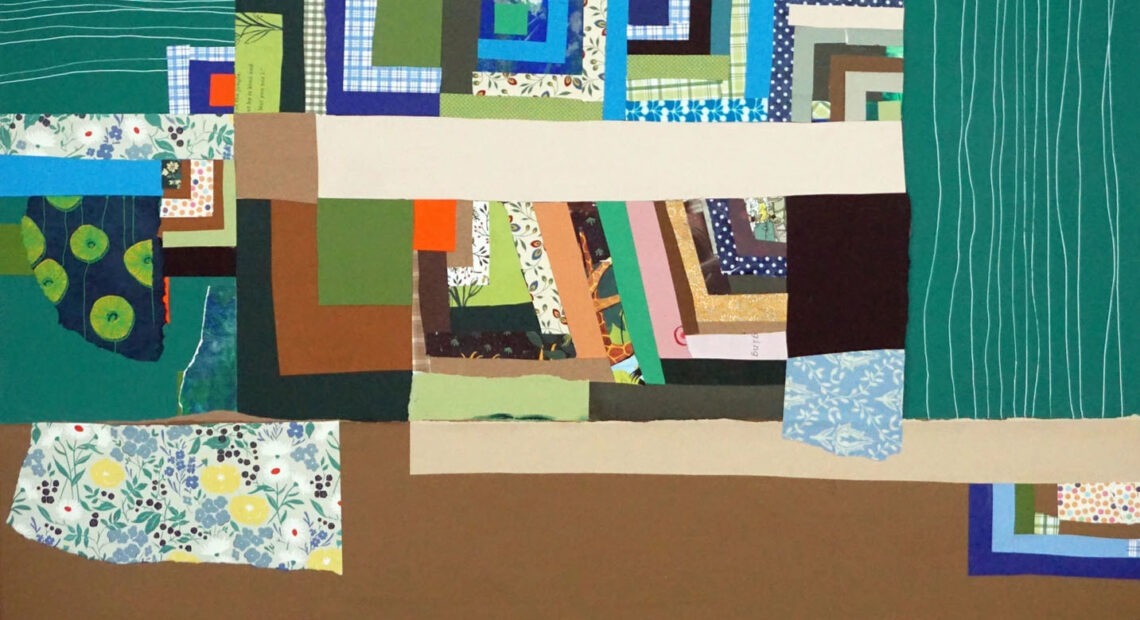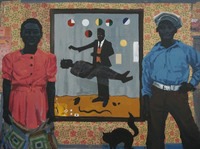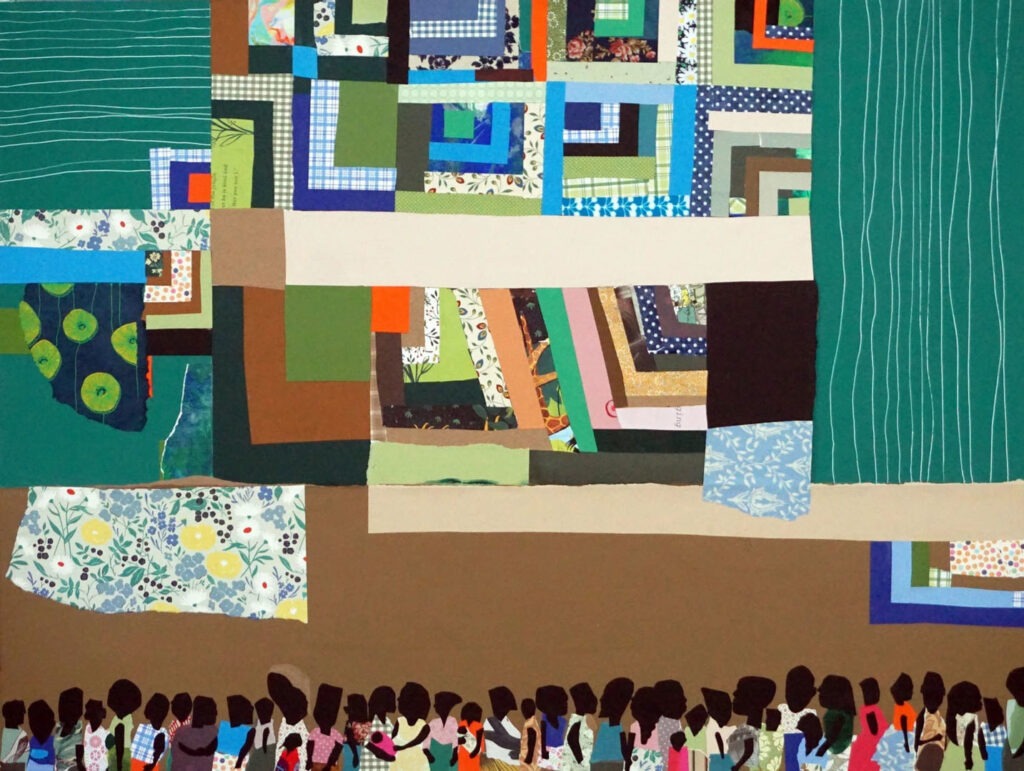
Illustrators Build A Bridge For Young Readers, Says Artist James Ransome
LISTEN
BY KAREN MICHEL
Artist James Ransome is a huge Parliament-Funkadelic fan. So much so, that one of their tunes provided the soundtrack when Ransome accepted the Society of Illustrators’ Gold Award during a virtual ceremony on Thursday.
For his acceptance speech, the prize-winning illustrator held up cue cards with his thanks, while bopping to the music. “That’s what will come on sometimes when I’m painting, which is a little different from when I’m illustrating,” he said. (When he illustrates, he listens to jazz.)
Ransome is well-known and loved for his illustrations, especially for his many children’s books. But at age 60 he recently earned an MFA, and is developing a parallel career as a painter. His Gold Award was for Who should own Black Art — a painting and book jacket — and his acceptance speech acknowledged some of his influences, including his mentor, Jerry Pinkney, a member of the Society of Illustrators Hall of Fame.

James E. Ransome, Who should own Black Art, acrylics and collage on canvas
CREDIT: James E. Ransome
“In the very beginning, if you were watching him, you could see his tendencies in that direction in how he went about his illustration,” Pinkney says. “You could see his brushstrokes, his painterly quality; his focus on story. He approached his illustration as a painter would approach a canvas.”
Like Pinkney, Ransome focused on books about African American figures in history, politics, sports and the arts. In Before She Was Harriet, Ransome swoops above Harriet Tubman as she guides her passengers on the Underground Railroad to freedom. In Game Changers, he goes courtside with tennis superstars Venus and Serena Williams.
In My Story, My Dance — written by Lesa Cline-Ransome, his wife and frequent collaborator — Ransome illustrates the story of Robert Battle, who went from a boy in leg braces to a professional dancer, choreographer, and leader of a world-renowned dance company. Ransome’s illustrations unfold almost like a movie — some are multiple line drawings on a page, overlain with pastels of an exuberant young man in motion.
In many of Ransome’s books, he’ll combine his paintings and drawings with bits of paper, collaging the images.
“I do have bins and boxes of papers everywhere …” he says. “It’s like a quilter — a quilter who takes an old shirt … that becomes a part of the quilt. And that’s what I find fascinating — patterns and shapes and colors and how you can reassemble them.”
It’s kind of analogous to assembling the text that Ransome’s given as a starting point for his illustrations.
“I’m trying to find something in between the words, in between the sentence and the structures of the sentence,” he explains. “I’m trying to find a sort of something that the writer is not necessarily describing or talking. There’s a soul. That’s what I sort of call it, a sort of in-between space that I’m going for.”

James E. Ransome, Quilt Folks, acrylic and paper collage CREDIT: James E. Ransome
For now, Ransome intends to keep up both his art practice and his work as an illustrator. He sees the books as a natural bridge for young readers.
“I feel like, you know, I want to sort of bring them up, or sort of be this bridge between what’s in their hands, or they’re holding, and going to a museum.”
On the door leading out of Ransome’s studio there’s a saying, in multicolored letters, attributed to painter Edward Degas: “Art is not what you see but what you make others see.”
For artist and illustrator James Ransome, that applies to his work whether it’s in a book, or on a wall.















